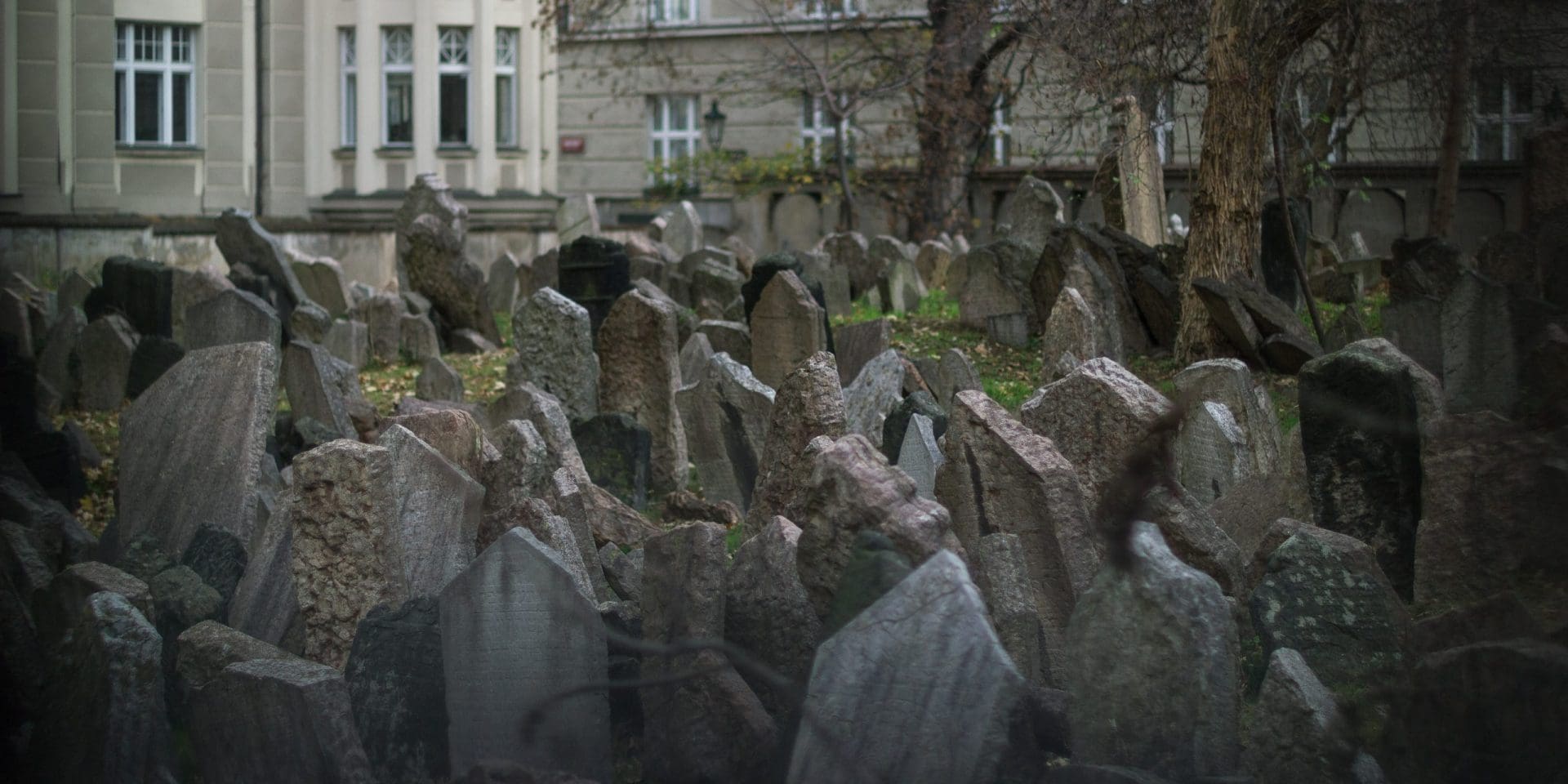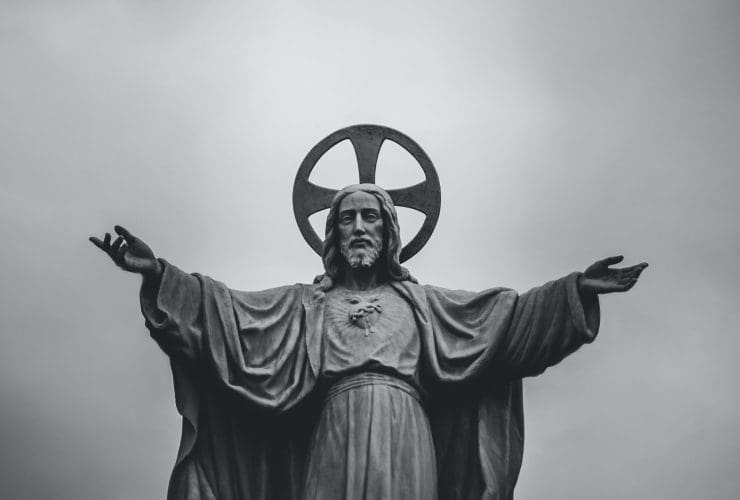Q:
“Can a Christian be cremated in regard to the Resurrection?”
Dale W.
Cremation does not affect the resurrection in any way. The negative moral tone applied to the practice of cremation is partly cultural upbringing and a matter of conscience. I will quickly go over why people believe it matters, and then show why it does not.
Why cremation is prohibited or problematic
A longstanding tradition throughout Judaism and Church history is the prohibition to cremate or mutilate a human body. There are several reasons for this, though I’ll only deal with the Scriptural reasons here. Eastern Orthodox, Catholicism in the Middles Ages, and Jewish tradition harmonized Scripture in a very legal way, primarily based on the theological inference of God’s holiness, the value and respect for the image of God, and the negative connotation usually implied when a body is burned in the Law, historical narrative and prophetic circumstances (2 Kings 23:15-20; Amos 2:1-3; Obadiah 1:18; Genesis 19:28). In the Mosaic Law, Leviticus 20:14 indirectly refers to cremation in cases of utter sexual depravity: “they shall be burned with fire, that there may be no depravity among you”. Joshua, also, refers to persons and things being “burned with fire” when it directly opposes God’s command, as is the case of Achan and his inheritance (Joshua 7:15, 25-26). As Christians, the use of fire to judge evil is well known, whether to judge at the end of the world (Joel 2:1-3; Zephaniah 3:8; Malachi 4:1; Luke 12:49, 17:29-30; 2 Peter 3:7, 10, 12; 1 Corinthians 3:13) or in eternal hellfire (Matthew 25:41; Jude 1:7; Revelation 20:13-15). Cremation is further discouraged because of eschatology: the resurrection of our physical bodies.
With that in mind, here’s the rationale: Mankind is made in the image of God. The image of God is “very good” and holy. Therefore, the human body is holy, it is the property of God (not ours). On Judgment Day, God is going to bodily resurrect all persons in their flesh. Since our flesh is made in the image of God and is holy, it is forbidden to burn a body and desecrate the holy image of God (or what God intended to be holy before the Fall). Therefore, the nature of the practice is disrespectful and ought to be repulsive for a human to burn another human body made in the image of God. For these reasons, it is seen as taboo, pagan, or perverse, insofar that burning a body held two connotations: (a) it was a form of punishment (or condemnation) to burn the body of an “evil” person and (b) it was prohibited to burn the body of a holy person such as a prophet (2 Kings 23:15-20). But what does the Bible actually affirm?
What the Bible actually affirms about cremation
While I admire the heart that underpins the theological application of this position, the Bible says nothing about if the practice of cremation is good or evil in itself. Technically, there is no explicit command in Scripture for or against cremation. Not in the Old and not in the New. There is no Law that declares cremation sinful, nothing that says burning a body is mutilation or desecration, nor is there any mention that burned bodies have received their due punishment or will somehow be exempt from resurrection come Judgment Day. Cremation has no affect or bearing on the resurrection, nor does it indicate the spiritual status of a soul (whether they stand restored or condemned), nor does it mean the soul of the burnt body is somehow cursed. Scripture has a wealth of spiritual imagery. When a body is burned in narrative or prophecy, it is spiritually referencing the eschatological consequences of evil and its final, fiery destination. Scripture is not creating a rule about cremation, it is not even inferring that burning a body is even wrong. In fact, cremation is now discouraged but not viewed as sinful in many modern denominations. Here’s some reasons why:
Cremation does not affect the resurrection. Take early Christians martyrs who were burned alive on poles by Nero. Are they unworthy of resurrection or cursed by God? Or other early Christians martyrs like Peter’s wife who were ripped apart limb by limb and eaten by wild beasts in the Colosseum. Will they be resurrected without limbs (for eternity)? How about the Holocaust where thousands of bodies were burned to ash against their will–––are they exempt from the resurrection? Clearly, the answer is no, no, no. Or take the Bubonic Plague (aka. Black Death) that killed one third of European Christendom in the 14th century, people had to burn bodies of their loved ones to stop the spread of disease. Does that mean these Christian were disrespectful or lacked reverence for God’s creation? No. Even today, China houses the biggest body of Christian believers in the entire world, but due to COVID-19 the protocols in China were to burn bodies to ash to prevent the spread of disease. Same thing is happening right now in India, too. Does that mean a Chinese or Indian Christian will lose their salvation if their body is burned? No! Cremation does not nullify or affect the resurrection in any way, shape or form. All will resurrect in the flesh and stand before God on Judgment Day (Job 19:25-27; 2 Corinthians 5:10; Revelation 20:11-12).
All bodies turn to dust. Furthermore, if cremation is just quickening the process for how fast you turn to dust, consider all the bodies of the early OT prophets –– Seth, Noah, Abraham, et al –– who no longer have flesh at all let alone bone. They are, as Genesis 3:19 says, “dust”. So, is God now unable or powerless to resurrect the body if there is no flesh or bone to resurrect? Of course, not–––after all, we know that God could raise stones to be the children of Abraham (Matthew 3:9) or even to praise His name (Luke 19:40). Since God formed us from the dust, and created the dust also, this is not just a bluff or poetic talk. God does not need our flesh or bones to resurrect us come Judgment Day. What does Christ say, “Leave the dead to bury their own dead,” let the dust bury the dust, “But as for you, go and proclaim the kingdom of God.” (Luke 9:60).
All things will be judged by fire. Also, if the evil things of this world are to be judged by fire anyway (2 Peter 3:7, 10; cf. 1 Corinthians 3), then the world will one day be burned up or “cremated” by God. What is the issue with cremation, then? The one key difference here, though, is that the bodies are burned or turn to dust by God’s hand, not ours. So, another question comes to mind: Is it actually disrespectful to burn another human body? Not always.
Cremation is not always practiced in negative contexts for or by evil persons. Consider that both King Saul and his three sons, including Jonathan, were burned (or cremated, if you will) because their bodies were severely mutilated by the Philistines (1 Samuel 31:8-13). Saul, as we know, was regarded as evil, but Jonathan was not – he was loved by David and was in good standing in Scripture (2 Samuel 1:23-26). Though I hesitate to take historical accounts and create application out of it, the men burned the royal bodies because it preserved their reputation and status from enemy ridicule, and Saul was, nonetheless, God’s anointed. This was not frowned upon in the text. In fact, it seems that, based on the condition of the bodies, it was the appropriate way to handle the corpses and a sign of respect for the royal family. David does not condemn their actions, either. David and his men mourn and weep for them and Israel “because they had fallen by the sword”, not because their bodies were burned. So, even in OT context it was not entirely negative, prohibited, or even unlawful. It was circumstantial, heart driven. As God says to Samuel, “man looks on the outward appearance, but the LORD looks on the heart.” (1 Samuel 16:7) Ancient Judaism adhered to the inner man “man as he truly is” and the outer self “man as he appears to be”, often referred to as reputation, status, or name. The bodies of Saul and Jonathan were only the outer appearance of them, so Israel respected their inner man by burning their mutilated bodies.
Cremation is not mutilation or desecration. At the end of the day, this cremation problem really boils down to one thing: Does cremation equal mutilation or desecration? For the reasons stated above, I don’t think it does. They burned the royal bodies because they were mutilated or decomposing, not to mutilate or desecrate them. It ought to be obvious that depraved actions against a dead (or alive) body, such as sexual defilement, is illegal and immoral. An action that disrespects the human body or disregards the value of the sanctity of human life (or the life that once was) is always immoral or illegal, whether your alive or not. But cremation itself is not disrespectful nor is it an evil practice, though it was practiced by pagan cultures, that is the only contrast had. And God has set out to redeem the world. What, then, is the issue? What is the point of this cremation law at all? It is solely a legal way to show that religious institutions respect or revere the image of God. But it should be said that following this law does not justify you as a good or holy person–––it depends on your heart. If you are burning a body to condemn a person, as if to take the judgment seat of God, you would be wise to strongly reconsider your position (cf. Luke 6:37; Matthew 7:1-5; James 4:12; 2 Corinthians 5:10).
Opposing cremation can be a form of legalism. Lastly, quickly consider that burying the dead in OT and NT context usually meant wrapping up the corpse and placing them inside a tomb or cave (Genesis 23:19, 35:19; 2 Chronicles 16:14; Matthew 27:60-66), not embalming the body or placing them underground necessarily, which is what we do today. The first person to bury a person under the earth was Cain, which was painted in a negative light. Is burying the dead underground a symbol of Cain’s evil? So, if we were going to be legalistic and follow burial rituals exactly like the Bible says, we would have to reconsider our entire burial method as it is now.
Concluding Remarks
To reiterate; cremation does not affect the resurrection – how we bury our dead is solely based on conscience and our reverence for the soul within the body, depending on the circumstance. The heart of those who oppose cremation are deeply concerned about the utmost moral reverence for life, the holiness of God’s image, and God’s future plan. As Noahic law affirms that “the life of the flesh is in the blood” (Genesis 9:4; Leviticus 17:11; Acts 15:20), a normal burial is a form of reverence for the soul and God’s lifegiving power. I think this is beautiful, and the most meaningful expression of our future hope, but it should not be viewed as a necessity or law (cf. Galatians 2:16, 18). It does not follow that there is some moral or spiritual problem if or when a person is cremated. It is not a sin, and there are always extenuating circumstances. After all, the extenuating circumstances to bury a body back then versus today are very different; not everyone can afford a proper burial today, they might be severely diseased, decomposed or mutilated, there is also more time for loved ones to get together for the funeral, et cetera. Cremation of a loved one may trouble a persons’ soul, but it should not, by any means, render the dead unworthy, depraved, cursed, or condemned. There is not always a 1:1 relation between life application and the spiritual inferences revealed in Scripture.
Can a Christian be cremated? ––– Yes.
Can a cremated Christian be resurrected? ––– Yes.
Should a Christian be cremated? ––– What we should do implies obligation, and we are obligated to conscience, love, goodness and truth. If cremation is not obligatory, in the law or otherwise, this is a matter of the heart and conscience for those who are still alive, it has no bearing on those already passed. It always boils down to the heart – the reason why. While some may think that the desire to cremate could mean a hardened heart, it does not mean that a person’s heart is hardened––we all intuitively know the body is not the whole person.
Just as Shadrach, Meshach, and Abednego were willing to be burned alive to worship God alone (Daniel 3:16-19), in the same way the apostle Paul spoke wisely when he said, “If I give away all I have, and if I deliver up my body to be burned, but have not love, I gain nothing.” (1 Corinthians 13:3. Emphasis added)
I hope that helps, Dale–––God Bless!

Matlock Bobechko is the Chief Operating/Creative Officer of Bible Discovery. He is an eclectic Christian thinker and writer, award-winning screenwriter and short filmmaker. He writes a blog on theology, apologetics, and philosophy called Meet Me at the Oak. He is also an Elder at his local church.






